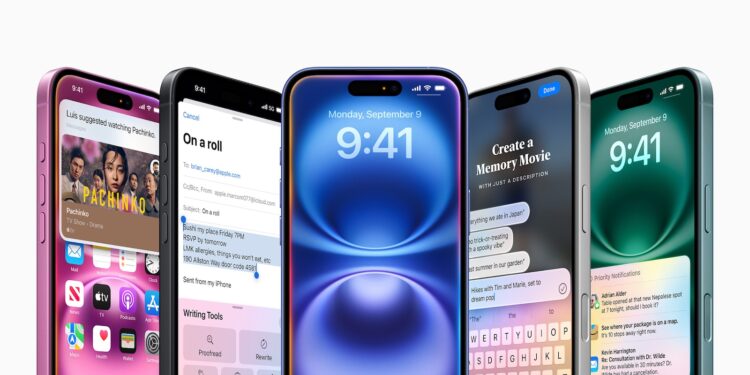The European Union (EU) is once again proving itself to be a strict guardian of competition. Its attention is currently focused on the US glass manufacturer Corning, a major Apple supplier and market leader in smartphone screen glass. The European Commission has launched an antitrust investigation because it suspects that Corning is exploiting its market position to exclude competitors and thus potentially harming competition. However, not everyone sees this investigation positively - critics wonder whether the EU antitrust authority sometimes intervenes too strongly in the market and thus hinders innovation rather than promotes it.
In the high-tech industry, where competition is tough and innovation cycles are short, strong partnerships and technological unique selling points play a crucial role. Corning and Apple have created such a collaboration, which has led to high-quality products and a particularly robust display glass. But it is precisely this exclusive partnership that is now being put to the test. The EU Commission wants clear upwhether Corning's business practices restrict competition. Some see this as an important step to ensure fairness. Others consider the investigation excessive and believe that the EU is increasingly extending its influence to markets and companies outside Europe.
Background of the investigation: Corning's market power
Corning has been the leading supplier of smartphone display glass for years, especially the well-known Gorilla Glass. The company enjoys an excellent reputation because its technology is used in many leading smartphones and stands for durability and high quality. The close partnership with Apple, which was strengthened by investments of around 495 million US dollars by Apple, has led to the development of the exclusive Ceramic Shield technology, which is used from the iPhone 12 series onwards and is considered particularly robust. This dominance in the market has attracted the attention of the EU. The antitrust authority fears that Corning may have abused its position by requiring smartphone manufacturers to enter into exclusive contracts in which they purchase glass almost exclusively from Corning. The Commission is questioning whether such exclusive contracts disadvantage smaller suppliers and thus restrict competition.
The EU and the protection of competition – too much of a good thing?
The EU antitrust authority sees itself as the guardian of fair competition and stresses that strong market players must not hinder the development of innovations. Competition Commissioner Margrethe Vestager points out that competition is particularly necessary in the area of display glass for smartphones so that consumers have access to affordable and robust products. But while the EU Commission's intentions are well-intentioned, there are also critics who say that the EU too often targets international companies that - at least in part - bring benefits to European consumers. Some experts wonder whether the antitrust authority sometimes overshoots the mark and thus inhibits rather than promotes competition and innovation in the high-tech sector. Especially in the case of exclusive contracts, which are common in the technology industry, the EU's strict regulations could deter some companies from entering into innovative partnerships.
Exclusive contracts: business practices or market restrictions?
There is no denying that exclusive contracts are a common practice in many industries, often with the aim of securing a long-term and productive partnership. For companies like Corning, which invest significantly in research and development, such agreements are often necessary to compete against cheaper rival products. The question remains whether it is actually up to the EU to decide how much exclusivity is permissible. In this case, Ceramic Shield technology raises questions because it is only available on Apple products and gives iPhones a competitive advantage. While competitors like Samsung rely on standard Gorilla Glass, Ceramic Shield remains inaccessible to them. The EU might argue that this hurts competition but others would say that exclusive technologies are a natural consequence of innovation and partnership and that any strong technology partnership puts other suppliers at a disadvantage in some way.
Possible consequences and the question of efficiency
If the investigation shows that Corning has actually violated EU competition rules, the company could face high fines. However, the effectiveness of such penalties is also being questioned: high penalties could have a deterrent effect, but they could also send a signal to companies to be more cautious in their innovation partnerships and exclusive developments in the future - which could ultimately be to the detriment of consumers. The question remains as to how much regulation is necessary and where the EU may be exceeding its competences. While fair competition is undoubtedly important, too much intervention could actually be harmful to the market in the long term and slow down companies' ability to innovate.
Does EU antitrust policy lead to fairness or does it promote market barriers?
The Corning case shows that the EU antitrust authority wants to ensure fair competition on the one hand, but on the other hand is repeatedly criticized for regulating international companies and markets too strictly. The investigation could influence the market for smartphone protective glass and possibly create new opportunities for smaller suppliers. But the question remains: is the EU actually enforcing fairer competition through such investigations or is it hindering companies that invest in high-quality and innovative products? The outcome of the investigation will show to what extent the EU is exercising its role as a regulatory authority sensibly or whether the criticism of excessive interference is justified. (Image: Apple)





